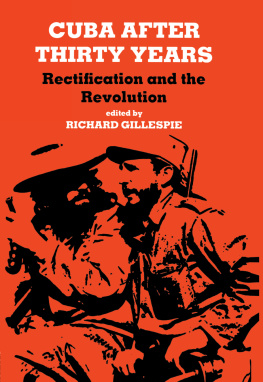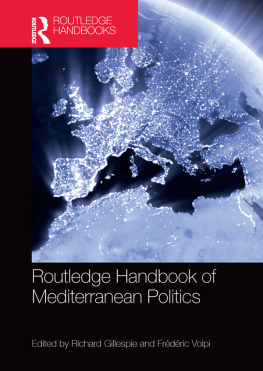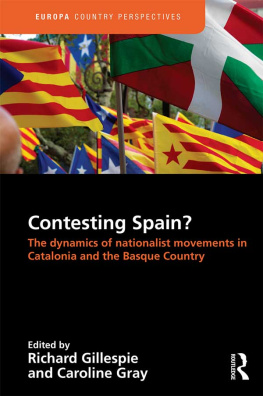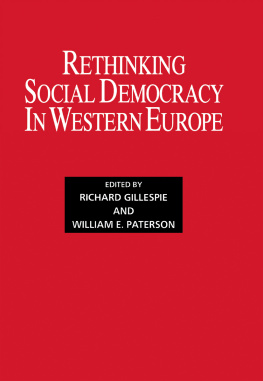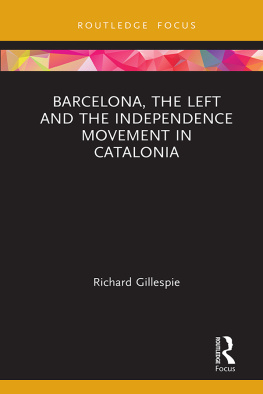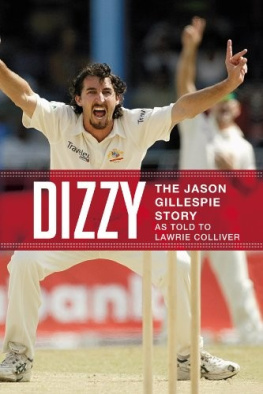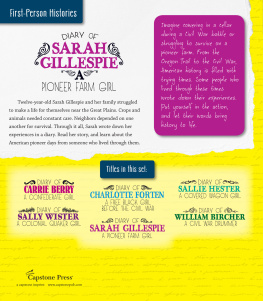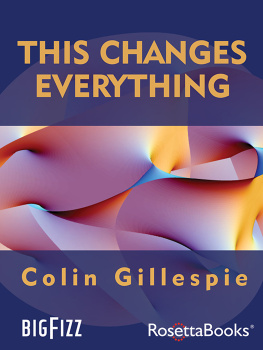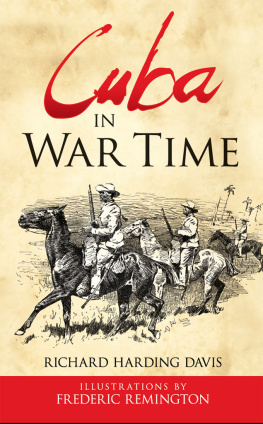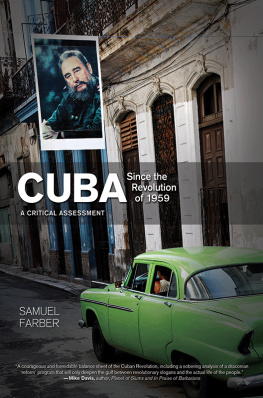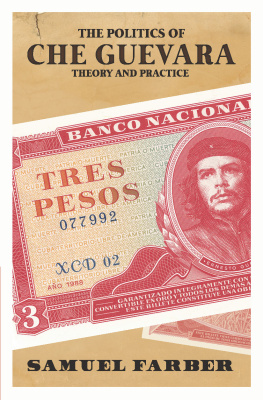CUBA AFTER THIRTY YEARS
Rectification and the Revolution
CUBA AFTER THIRTY YEARS
Rectification and the Revolution
Edited by
RICHARD GILLESPIE
First published 1990 by
FRANK CASS AND COMPANY LIMITED
Published 2013 by Routledge
2 Park Square, Milton Park, Abingdon, Oxon OX14 4RN
711 Third Avenue, New York, NY, 10017, USA
Routledge is an imprint of the Taylor & Francis Group, an informa business
Copyright 1990 Frank Cass & Co. Ltd.
British Library Cataloging-in-Publication data
Cuba after thirty years: rectification and the revolution.
1. Cuba, Politics, history
I. Gillespie, Richard 1952 II. Journal of communist studies
320.97291
Library of Congress Cataloging-in-Publication Data
Cuba after thirty years : rectification and the Revolution / edited by Richard Gillespie.
p.cm.
References: This group of studies first appeared in a special issue on Cuba after thirty years, rectification and the Revolution, The Journal of communist studies, vol. 5, no. 4 published by F. Cass.
1. CubaPolitics and government1959 Congresses. 2 CubaHistoryRevolution, 1959Congresses. 3. RevolutionsLatin AmericaHistory20th centuryCongresses. I. Gillespie, Richard, 1952. II. The Journal of communist studies.
F1788.C767 1989
972.91064-dc20
8948248
CIP
ISBN 13: 978-0-714-63390-9 (hbk)
This group of studies first appeared in a Special Issue on Cuba After Thirty Years: Rectification and the Revolution, The Journal of Communist Studies, Vol. 5. No. 4, published by Frank Cass & Co. Ltd.
All rights reserved. No part of this publication may be reproduced, stored in a retrieval system, or transmitted in any form, or by any means, electronic, mechanical, photocopying, recording, or otherwise, without the prior permission of the publisher.
Typeset by Selectmove Ltd, London
Contents
Richard Gillespie
Alistair Hennessy
Max Azicri
Ronald J. Hill
Jorge I. Domnguez
Peter Shearman
Alfonso Casanova Montero and Pedro Monreal Gonzlez
Carmelo Mesa-Lago
John King
Antoni Kapcia
This collection of articles has been produced, not just to mark the thirtieth anniversary of the Cuban revolution, but because the anniversary has fallen at a time of important political developments affecting the Caribbean island. Even before the Ochoa affair brought to light the corruption of part of the revolutionary elite, 1989 was clearly a crucial time to look back upon the years since 1959, assess current developments and consider future perspectives. By the late 1980s the ageing of the early revolutionary leadership brought into debate its succession, in which not only the party but also that equally strong institution, the military, clearly had an interest. At the same time, Cubas future role on the international scene became less certain following the agreement to withdraw her troops from Angola, which also promised to contribute to internal tensions as the soldiers returned home. And of course, Gorbachevs implementation of perestroika in the Soviet Union provided further impetus for change, even though the Soviet reforms were manifestly unpalatable to the Cuban leadership.
It was for these reasons that the Journals editorial team decided to bring together some of the worlds leading Cuba scholars for a conference entitled Cuba, 30 Years On: The Dynamics of Change and the International Dimension. Held at the University of Warwick on 1214 May 1989, this was an important (and some said historic) event, for three reasons. First, because it produced the first constructive dialogue between senior US-based Cuba specialists, noted for their critical position, and younger, more sympathetic, radicals. Second, because of the open-mindedness of the participant from Havana, Pedro Monreal, which enabled there to be a positive exchange of views between the revolutions representatives and its external observers. And third, because the Journals organization of the event ensured the presence of several non-Cuba specialists who were able to make valuable comparisons between the Cuban experience and other parts of the communist world.
The conference discussants deserve a special mention, since apart from helping to generate an excellent level of discussion, their comments were put to good use by several of the paper-givers when revising their contributions for this publication. Laurence Whitehead made some incisive comments in the international session, Sergio Roca and Andrew Zimbalist helped produce an excellent debate on the Cuban economy, Michael Waller contributed to the comparative discussion of revolution, Stephen White similarly broadened the discussion on ideology, and Peter Ferdinand and Ronald Hill added comparative references to China and the Soviet Union to Jorge Domnguezs analysis of the Cuban military. Peter Ferdinand was also co-organizer of the event, while Ron Hill contributed to this publication as the Journals style editor.
The conference could not have been held without financial support from the Nuffield Foundation, the British Academy, the Research and Innovations Committee of the University of Warwick, the Foreign and Commonwealth Office and our publisher Frank Cass. The FCO and Cuban Embassy in London facilitated rapid communication with Havana during the preparation of the event, and organizational help was provided by Alistair Hennessy and George Lambie of the Joint School of Comparative American Studies and Centre for Caribbean Studies at the University of Warwick.
The contributions published below are largely revised versions of the conference papers. Unfortunately, ill health prevented Brian Pollitt from transforming his conference presentation on the sugar industry into an article. On the other hand, the collection has acquired an additional item since the conference: a short comparative note by Soviet specialist, Ronald Hill. We start with three different comparative focuses on Cuba: that of Alistair Hennessy, who compares the Cuban revolution to the French and Russian, and to revolutionary processes in Latin American; Max Azicris focus, which compares the process of institutionalization in Cuba and Nicaragua; and that of Ronald Hill, who highlights points of comparison between Cuba and other communist regimes.
Other features of this collection are major contributions by Jorge Domnguez on the Cuban military and Carmelo Mesa-Lago on the economy; analyses of CubanSoviet relations by Peter Shearman and of the prospects for CubanUS rapprochement by Alfonso Casanova and Pedro Monreal; and cultural studies by John King, on Cuban cinema, and Antoni Kapcia, on the Cuban ideological tradition.
Essentially, the contributions to be found here are of three kinds. Some set the Cuban experience in a comparative context, others use the vantage point of the thirtieth anniversary to look at the development of aspects of the revolution, and the rest are concerned with the recent period of rectification. This latter process is still in the process of defining itself, but the principal traits have been an economic counter-reform, reversing the experimentation with market socialism of the early 1980s, an attempt to reduce the systems inefficiencies and inertia, and a renewed appeal to moral incentives, though by no means a return to the extreme Guevarist voluntarism of the 1960s. The dimensions of the rectification process have grown during the thirty-first year of the revolution to embrace a complete restructuring of the Interior Ministry in the wake of the Ochoa affair. Yet rectification by definition cannot be a permanent process, and if some of the hypotheses presented below are correct, then there may well be a shift in some new direction during the next decade.


